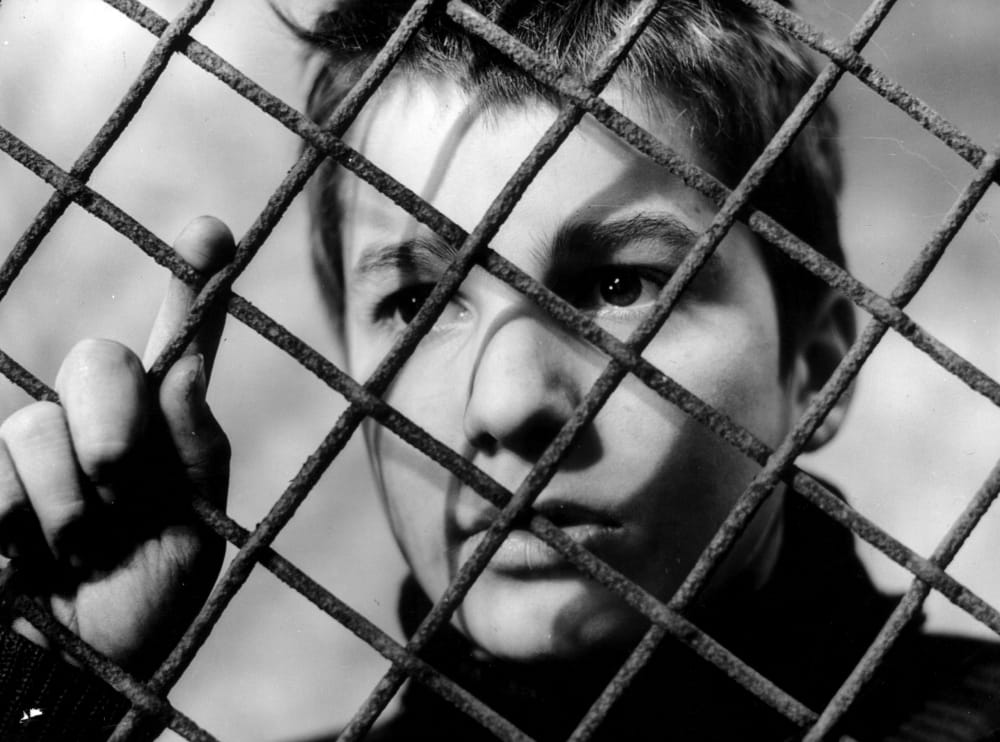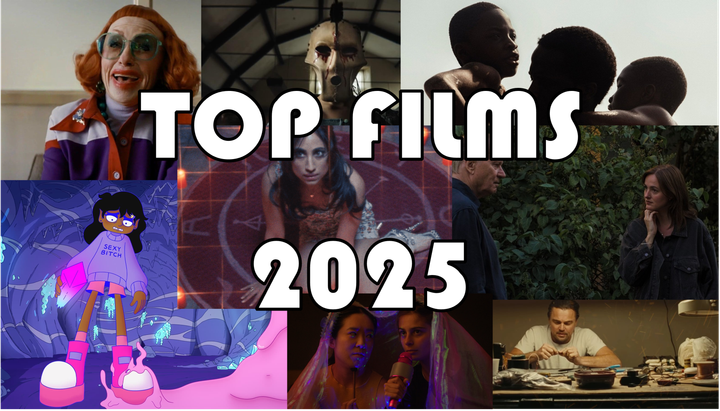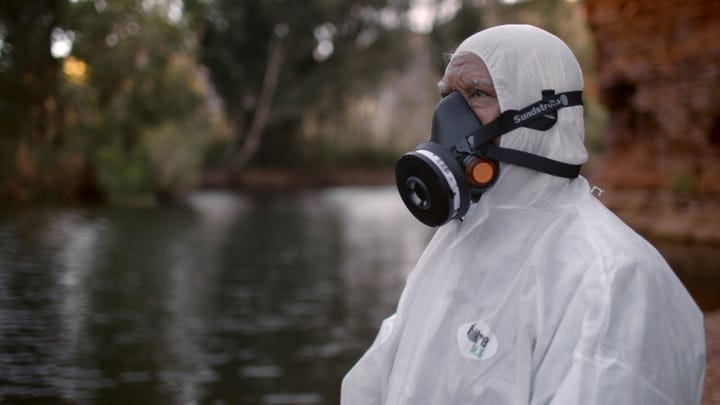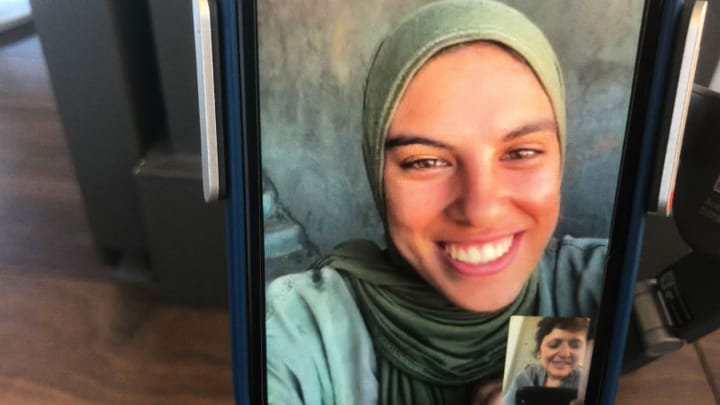'The 400 Blows' by François Truffaut (1959)
The French New Wave starts here...

Watched by Matthew Donlan at the Art Gallery of NSW
The directorial debut of François Truffaut, the coming-of-age tale of Antoine’s struggle to find his place in Paris, marked the start of a revolutionary wave in filmmaking.
‘Eye for eye. Tooth for tooth’ - etched by Antoine on the wall of his classroom. This is the way he sees the world because this is the way the world has taught him to be. Justice is dealt with through violence. Lessons are given with the back of a hand. You learn through conformity and obedience.
But Antoine (Jean-Pierre Léaud), is not one for rigidity. His mind wanders and he tells lies, leading to trouble at home and at school. He does not want to sit in class all day reciting poetry, he wants to live. Antoine is eager to grow up and explore the world. To escape a troubled home life and a boring school life. Aided by his friend René, the two wanna-be adults skip class to see the sights of Paris. With their ties and briefcases (and often a cigarette in hand) the pair attend the cinema and carnival rides, free from the gaze of subjugating adults. The only difference between them; for René this is a luxury excursion, for Antoine a necessity.
Truffaut exquisitely handles the camera throughout. With a playfulness and tempo that would become synonymous with the French New Wave, Truffaut captures the energy of being a kid in the big city. His eye is to humour and joy as much as it is to sympathy and hardship. Antoine’s pursuit for adulthood stands out in contrast to the various asides of childhood seen in the film. Playtime at recess, a whirling machine at the carnival, escaping from your teacher during a walk of the city. These are all formative moments of a child’s life just like stealing pocket money, being made to do the chores or overhearing your parents argue at night.
They are also the reminders of what is lost to Antoine by the final act. His eagerness to grow up leads to a complementary response from the world. With seemingly no options left, Antoine’s father takes him to the police, where Antoine is held in a cell and whisked away to juvenile detention. The weight of this moment falls heavily on Antoine when, from the back of the police van, he is driven through the same streets of Paris he so freely walked just days earlier. It is a sombre farewell to childhood framed by the bars of the justice system which has taken it away.
In the juvenile prison, Antoine realises it is more of the same. The same discipline, the same structure, the same people. Again he longs for escape. He longs to see the sea. A view that was never granted to him due to the station of his life. In the iconic and powerful final moment of the film, Antoine reaches the shore, then, on a zooming freeze frame, glances at the camera.
In this moment, is Antoine passing judgement on our observations, looking upon us asking how has it come to this? Or is it a cheeky, knowing glance, like that between students pulling faces behind the teacher’s back? He has his back turned to the sea, so is this a symbol of him formally entering adulthood by turning his back on his childhood pursuit? And we are left looking at the sea, perhaps asking us to consider what our ‘sea’ is that we are chasing?
Somehow, in this moment, all possibilities are true because Antoine (and his entire world) has been frozen. He, his life and possible futures are in stasis. This can be hopeful - Antoine achieved his goal and can remain there forever. Or it can be pessimistic, for Antoine is frozen as a child while he so desperately wanted to grow up.
It is a masterful end to a film that heralded the start of the French New Wave. The movement, carrying with it Truffaut, Godard, Varda and Demy (amongst many others), is marked by its desire to pose questions, not answers, to elicit feelings and experiences, and to combat the formalist, high-class films which came before it. Like Antoine in The 400 Blows, Truffaut and his peers tackled the establishment with fervour, pioneering a new filmic language for the young and disaffected.
The Art Gallery of NSW is screening several films in the ‘Nouvelle Vague - A short history of the French New Wave’ series. The series continues on Wednesday with ‘Breathless’ by Jean-Luc Godard.
Fleapit Pick of the Week
Sydney Experimental promises a night of live music and short films which push beyond the conventional forms of narrative. All happening at the Factory Theatre on Friday, get around local artists by grabbing a cheap ticket HERE.
Screenings: Thursday 10 July - Wednesday 16 July
Cinema Astragale
Paris Doesn’t Exist (1969, Robert Benayoun)
Thursday
Liberation Cinema
Guniwaya Ngigu (We Fight) (1982, Madeline McGrady)
Tuesday
Sydney Experimental
An Evening of Boundary Defying Film
Friday
Riverside Parramatta
Radiance (1998, Rachel Perkins)
Friday
Like My Brother (2024, Sal Balharrie & Danielle MacLean)
Saturday
Roseville Cinema
Tina (Mother) (2024, Miki Magasiva)
Daily
Hayden Orpheum | selected highlights
Rocky IV - Director’s Cut (1985, Sylvester Stallone)
40th Anniversary
Friday
2001: A Space Odyssey (1968, Stanley Kubrick)
70mm Screening
Saturday
Breathless (1960, Jean-Luc Godard)
65th Anniversary
Saturday
Wings of Desire (1987, Wim Wenders)
Sunday
Golden Age Cinema | selected highlights
Ellis Park (2024, Justin Kurzel)
Friday
Germany, Year Zero (1948, Roberto Rossellini)
Sunday
Ritz Cinemas, Randwick | selected highlights
The Wolves Always Come At Night (2024, Gabrielle Brady)
Daily
Nansie (2025, Anna Trichet-Laurier)
One-off screening w/ Q+A
Wednesday
Robert Altman Retrospective (link)
Nashville (1975, Robert Altman)
Thursday
Cult Classics (link)
Chungking Express (1994, Wong Kar-Wai)
Saturday & Monday
Celluloid Film (link)
Boogie Nights (1997, Paul Thomas Anderson)
Friday
Classic Matinees (link)
All About Eve (1950, Joseph L. Mankiewicz)
Saturday & Monday
Make It Musical (link)
The Blues Brothers (1980, John Landis)
Sunday & Wednesday
Meet Cute (link)
Coyote Ugly (2000, David McNally)
Tuesday
Dendy Newtown | selected highlights
The Wolves Always Come At Night (2024, Gabrielle Brady)
Daily
Bring Her Back (2025, Danny & Michael Philippou)
Daily
Ellis Park (2024, Justin Kurzel)
Daily (except Wednesday)
Celluloid Dreams (link)
La Haine (1995, Mathieu Kassovitz)
Monday
Night Shift (link)
Blow Out (1981, Brian De Palma)
Daily
Palace Cinemas | selected highlights
Cult Vault (link)
The Goonies (1985, Richard Donner)
Monday
Matinee Memories (link)
The Wizard of Oz (1939, Victor Fleming)
Saturday
Art Gallery of NSW
Nouvelle Vague - A Short History of the French New Wave (link)
The 400 Blows (1959, François Truffaut)
Sunday
Breathless (1960, Jean-Luc Godard)
Wednesday




Comments ()